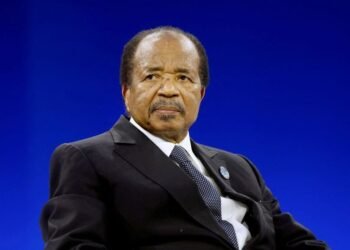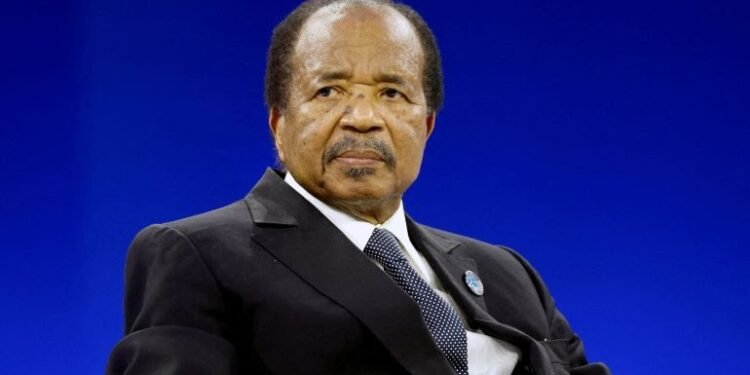The Minister for Defence, Dr. Edward Omane Boamah, has assured that the National Democratic Congress administration led by President John Dramani Mahama has the political will to end illegal mining, popularly known as galamsey.
Speaking at the latest edition of the Government Accountability Series held at the Jubilee House, Dr. Boamah described the fight against galamsey as a matter of national security and environmental survival, underscoring the decisive role the Ghana Armed Forces (GAF) continue to play in the nationwide campaign.
“We are not out of the woods yet as a nation, but there is hope because there is political will at the very top. The Ghana Armed Forces have played significant roles in the fight against illegal mining.”
Minister for Defence, Dr. Edward Omane Boamah
Dr. Boamah disclosed that following an extensive review of the government’s anti-galamsey strategy, a number of critical reforms had been implemented to make the fight more effective, structured, and sustainable.
Among the most significant outcomes of this review is the establishment of a new body—the National Anti-Illegal Mining Operations Secretariat. This secretariat, he noted, will serve as a coordinating platform for all government initiatives aimed at eradicating illegal mining activities.
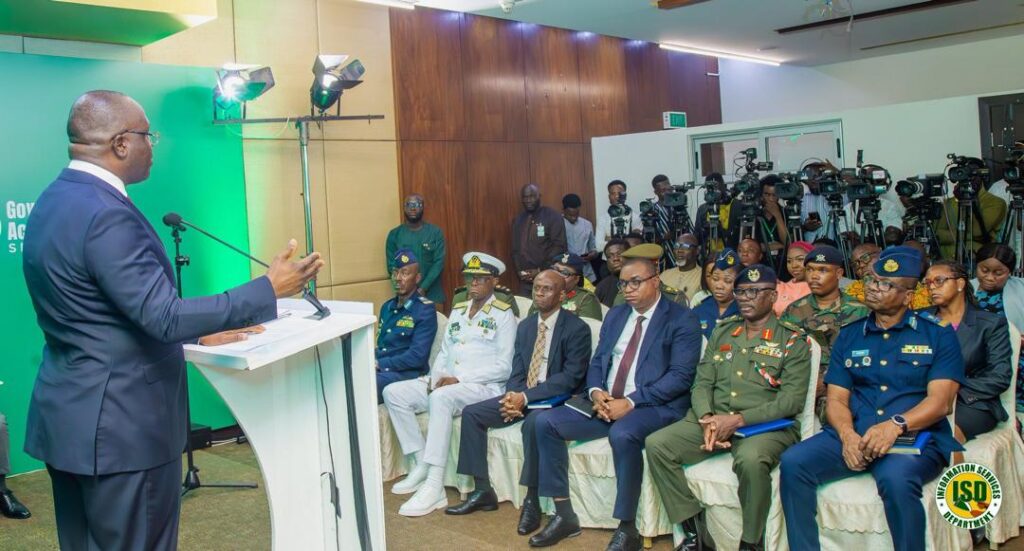
“This Secretariat is a product of that review exercise. It ensures we are not only reactive, but also proactive and structured in our operations.”
Minister for Defence, Dr. Edward Omane Boamah
Inclusive Approach
The Defence Minister emphasised that beyond enforcement actions, the new approach also focuses on long-term planning, intelligence coordination, and ensuring that the state’s interventions are consistent and comprehensive across all regions affected by galamsey.
According to him, the reforms mark a shift from fragmented enforcement efforts to a nationally unified and data-driven operational strategy.
Dr. Boamah was full of praise for the Ghana Armed Forces, whose frontline involvement in the fight has led to the recovery of environmentally degraded forest reserves.
He disclosed that several forest zones, previously considered too dangerous for forest guards to enter due to entrenched illegal mining networks, have now been reclaimed through the efforts of the GAF.
“The recovery of several forest reserves, which our forest guards could not even venture into, was led by the Ghana Armed Forces,” he said, noting that these successes speak to the dedication and professionalism of Ghana’s military in advancing national interests beyond traditional defence roles.
The Minister also highlighted the role of the Ghana Navy in the fight, specifically in the context of Operation Halt II, which was designed to combat illegal mining activities in and along Ghana’s river bodies.
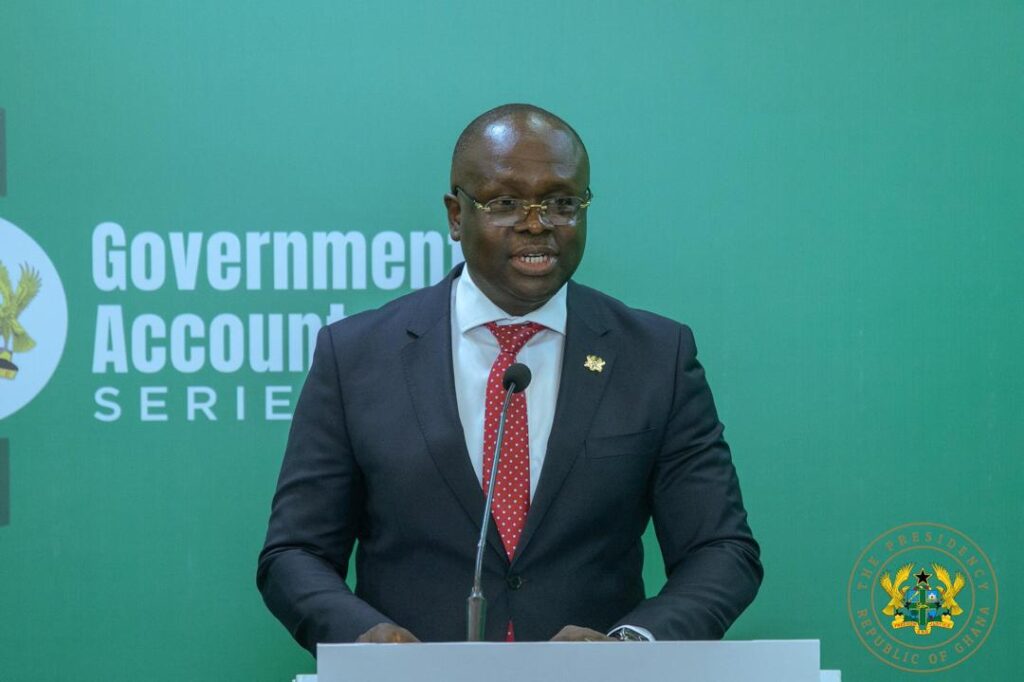
He explained that the operation, which targeted the River Ankobra in the Western and Western North Regions, had made significant strides thanks to the collaborative efforts of land forces and naval personnel.
Inter-Service Cooperation
Dr. Boamah emphasised that this kind of inter-service cooperation is a model for how different branches of the security apparatus can work together to protect vital national resources.
Dr. Boamah was unequivocal about the government’s position on galamsey, describing it as one of the gravest threats to the country’s environment, food security, and long-term development.
He maintained that protecting the environment must remain central to the government’s security and development agenda, especially considering the damage already inflicted on rivers, farmlands, and forests.
“Our stance is unwavering. We see this as a critical issue for sustainable development and for safeguarding our natural resources for future generations”.
Minister for Defence, Dr. Edward Omane Boamah
The Government Accountability Series, under which Dr. Boamah made these remarks, serves as a platform for ministers and key officials to provide updates on the government’s ongoing programmes and interventions.
Dr. Boamah’s presentation, which focused on the defence sector’s contributions to environmental protection, reflects the growing recognition of climate and ecological challenges as central to national security policy.
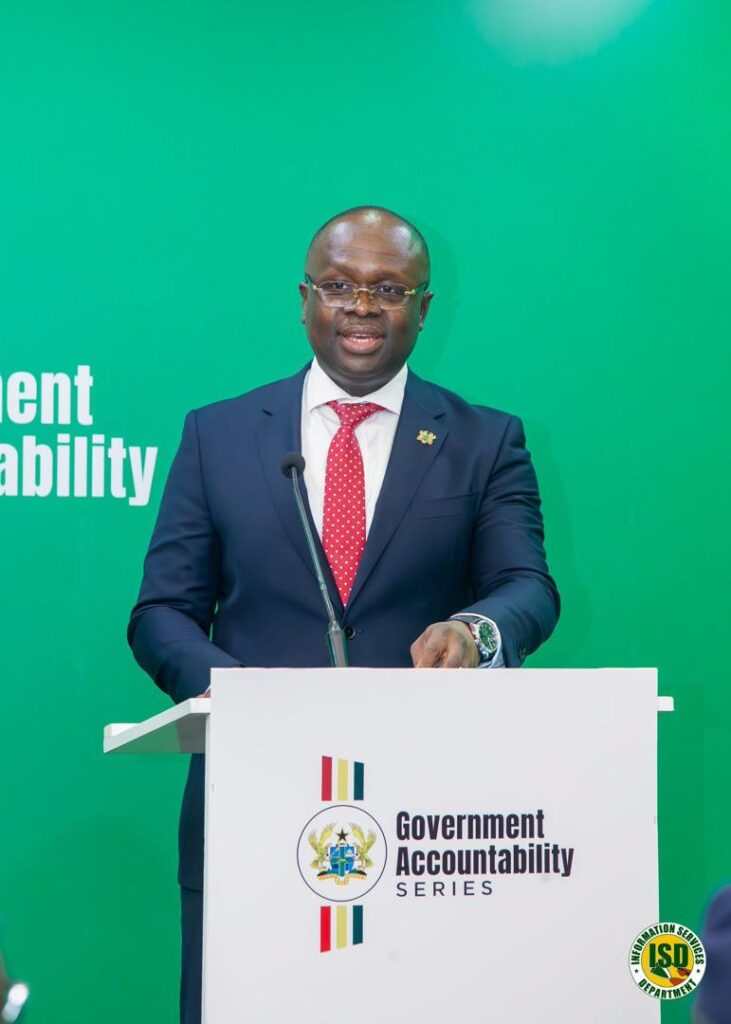
Environmental activists have long warned about the dangers of galamsey, noting that the illegal mining practice not only contributes to pollution and deforestation but also fuels local conflicts and undermines formal governance structures.
The involvement of the military, therefore, has been widely welcomed as a necessary measure to restore order and protect critical ecosystems.
Dr. Boamah’s reaffirmation of political will and institutional resolve sends a strong signal that the government intends to maintain pressure on illegal operators while investing in a more sustainable future.
For him, ending galamsey is not merely a campaign promise—it is a matter of intergenerational justice.
READ ALSO: IMF Inflows Trigger Investor Stampede into T-Bills—What’s Next for Stocks?




